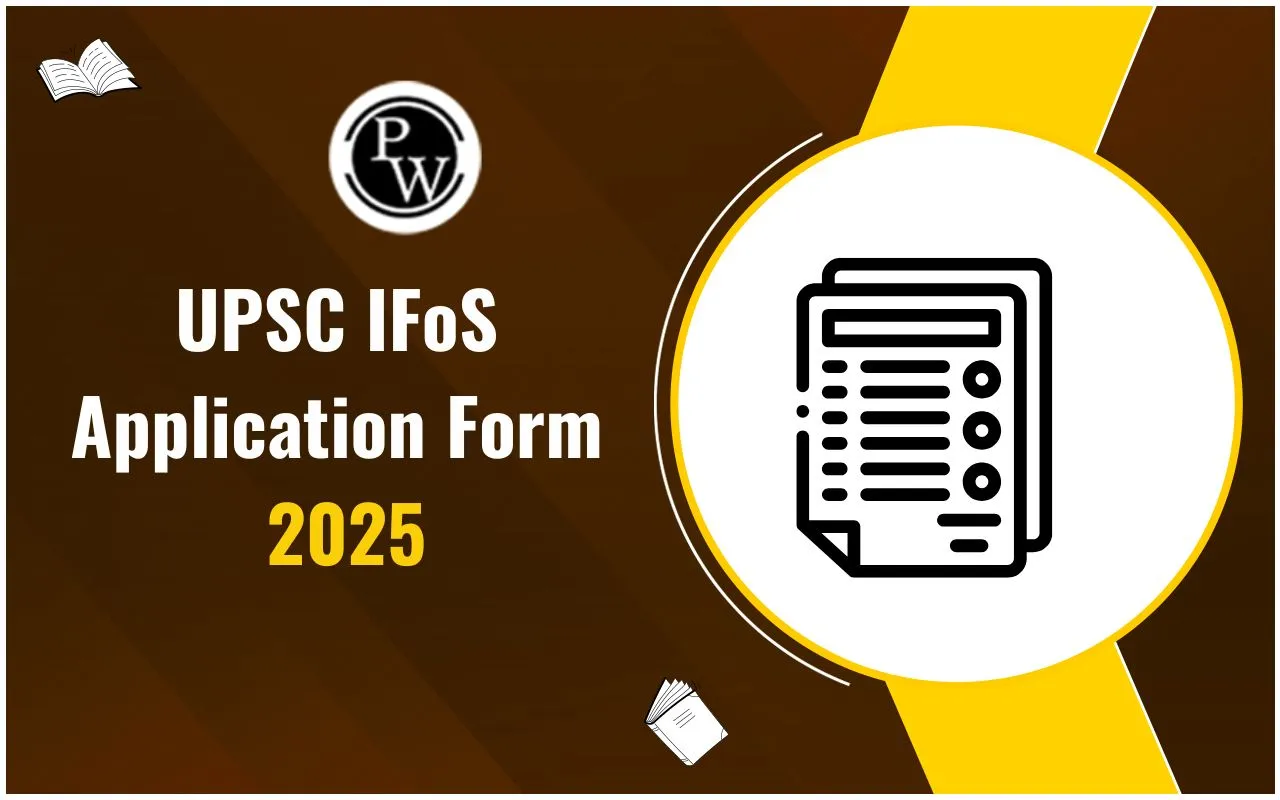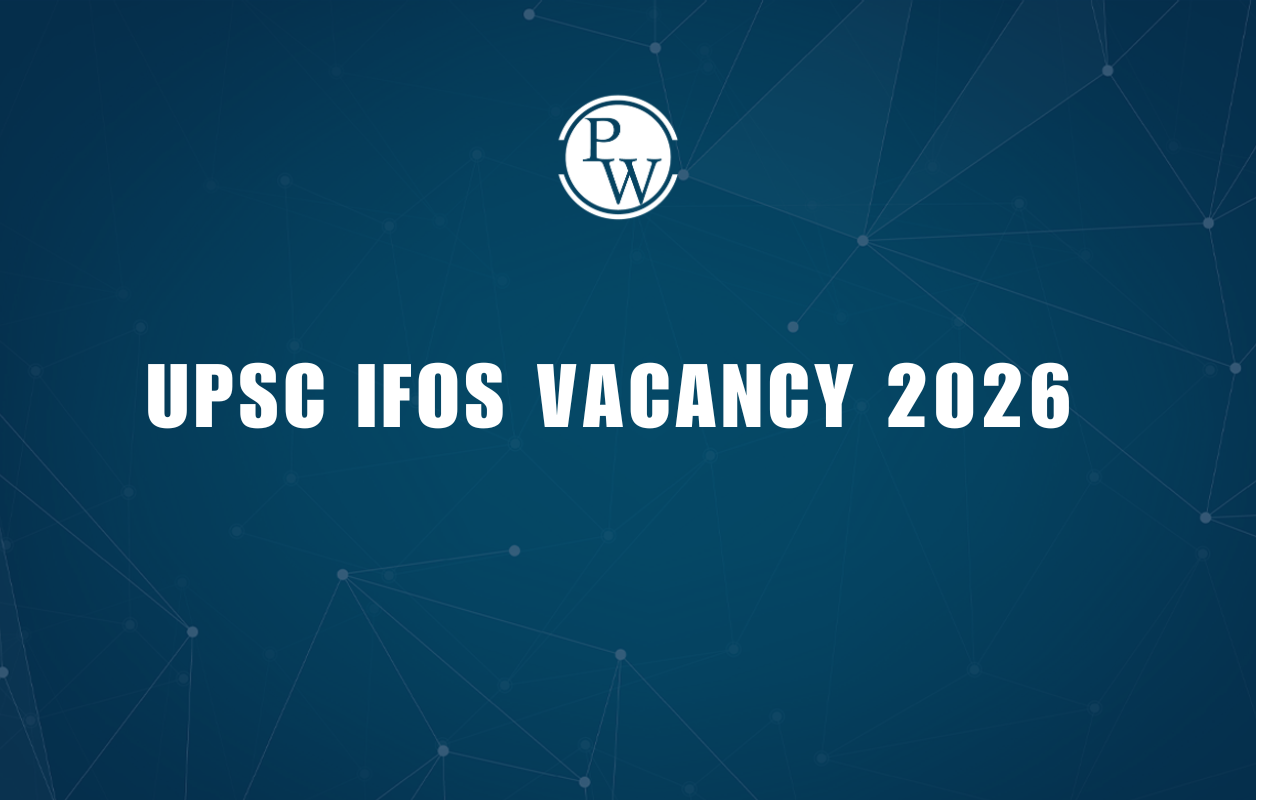
Science and Technology for UPSC is a vital section for aspirants who are currently preparing for the Civil Services Examination. This subject covers important advancements and current affairs. Mastering this subject is necessary to understand fundamental scientific concepts and to learn complex technological innovations. Here is a comprehensive guide that will help you navigate the Science and Technology for UPSC syllabus, recommended books, and effective study strategies.
Science and Technology Syllabus for UPSC Prelims and Mains
The UPSC Science and Technology syllabus is an important subject of both the Prelims General Studies-I paper and the Mains GS Paper-3 . It focuses on enhancing candidates' awareness of India's achievements, discoveries, and advancements in science, covering areas like nuclear energy, defence technologies, and biotechnology . The syllabus is interdisciplinary, often overlapping with optional subjects such as Physics, Chemistry, Zoology, Anthropology , and more.
Science and Technology Syllabus for UPSC Prelims (GS-I):
The UPSC Prelims General Studies Paper 1 usually asks around 10–15 questions on science and technology. However, the number of questions asked varies each year, and the syllabus emphasizes basic scientific concepts and current affairs related to science.
-
Physics:
- Universe & Solar System (Big Bang Theory, Redshift, Blueshift)
- Stars and planetary systems; Nuclear fission and fusion
- India’s nuclear program and reactors (3-Stage Nuclear Program)
-
Chemistry:
- Elements, compounds, and molecules
- Role of carbohydrates, proteins, fats, vitamins, and minerals in health
- Basic chemical reactions and periodic table fundamentals
-
Biology:
- Human anatomy (nervous, digestive, immune systems)
- Cell structure, DNA & RNA, reproduction (mitosis, meiosis)
- Diseases (AIDS, cancer), vaccines, and biotechnology applications
Science and Technology Syllabus for UPSC Mains (GS Paper-3)
This section in UPSC Mains requires a good understanding of scientific principles, technological developments, and their implications. Below is a breakdown of the key areas with a focus on recent advancements and core topics relevant to the exam.
Developments and Applications of Science and Technology
- How technology impacts everyday life (healthcare, industry, agriculture, environment).
- The role of emerging technologies such as Artificial Intelligence, robotics, nanotechnology, and biotechnology .
Achievements of Indians in Science and Technology
- Contributions during ancient and medieval times (e.g., astronomy, metallurgy).
- Modern developments by Indian scientists in space, defence, IT, and energy sectors.
- Innovations in software and green energy technologies that promote sustainable development.
Indigenization and Development of Technology
- Initiatives like Make in India to reduce reliance on foreign technology.
- Examples include the development of cryogenic engines, defence systems (like BrahMos), and progress in the telecom and IT industries .
Awareness in Key Technological Fields
-
Information Technology (IT)
- Growth of India’s IT industry and government e-governance initiatives.
- Role of Digital India in transforming services and economy.
-
Space Technology
- Satellite communication systems (INSAT, GSAT) and their applications.
- Use of remote sensing in agriculture, disaster management, and defence.
- Development of cryogenic engines and missions such as Chandrayaan and Gaganyaan.
-
Robotics and Artificial Intelligence
- Applications in healthcare, industry, and defence.
- Challenges posed by AI and robotics on employment and the economy.
-
Nanotechnology
- Use of nanomaterials in medicine, electronics, and environment .
- Ethical concerns and health risks associated with nanotechnology.
-
Biotechnology
- Advances in genetic engineering, CRISPR , and DNA technologies.
- Role of bioinformatics and challenges related to biopiracy .
- Ethical issues in biotechnology, include concerns around intellectual property rights (IPR) .
Science and Technology Syllabus for UPSC Preparation Tips
- Read NCERTs from classes 8-12 to build a strong foundation.
- Follow current affairs and updates in science-related fields.
- Practice PYQs (Previous Year Questions) to understand the type of questions asked.
- Create concise notes to retain important concepts for quick revision
| To Know More about the Syllabus of Science and Technology |
| Click Here |
Best Books for Science and Technology for UPSC Prelims and Mains
Choosing the best book for Science and Technology is important for UPSC aspirants to build a strong foundation in the subject. Below are some highly valuable books prepared by subject matter experts at PWONLYIAS;
| Best Book for Science and Technology for UPSC Prelims | UPSC Udaan Prelims Wallah |
| Best Book for Science and Technology for UPSC Mains | UPSC Prahaar Mains Wallah |
| NCERT Book for Science and Technology for UPSC | NCERT Wallah Books |
| To Know More about the Best Books for Science and Technology for UPSC |
| Click Here |
Science and Technology Notes for UPSC
To effectively prepare for the Science and Technology for UPSC, organizing your study material is essential. Below we have provided the table summarizing notes on key topics, concepts, and important resources to help your preparation.
| Sr. | Topics |
| 1 | BIOTECHNOLOGY |
| 2 | DEFENCE |
| 3 | HEALTH |
| 4 | DISEASES |
| 5 | INFORMATION TECHNOLOGY |
| 6 | NANOSCIENCE AND NANOTECHNOLOGY |
| 7 | SPACE AND SPACE TECHNOLOGY |
| Science and Technology Complete Notes | Click Here |
| Science and Technology NCERT Notes | Click Here |
Science and Technology Syllabus for UPSC PYQs with Answers
The UPSC Prelims Science and Technology section tests candidates’ knowledge of recent scientific developments and their practical uses. This section typically covers areas such as biotechnology, space exploration, information technology, and health science.
Reviewing past exam questions and focusing on key topics can be very helpful for preparation. The direct link to the PSC Prelims Science and Technology questions with answers can be found in the table below.
UPSC Prelims Science and Technology Questions 2024
In the 2024 UPSC Prelims exam, approximately 9 to 10 questions were related to Science and Technology. Most of these questions were of easy to moderate difficulty. To answer them, candidates need a solid understanding of fundamental concepts and should stay informed on relevant current affairs.
Question 1: Which one of the following words/phrases is most appropriately used to denote “an interoperable network of 3D virtual worlds that can be accessed simultaneously by millions of users, who can exert property rights over virtual items”?
(a) Big data analytics
(b) Cryptography
(c) Metaverse
(d) Virtual matrix
Question 2: With reference to radioisotope thermoelectric generators (RTGs), consider the following statements:
- RTGs are miniature fission reactors.
- RTGs are used for powering the onboard systems of spacecraft.
- RTGs can use Plutonium-238, which is a by-product of weapons developments.
Which of the statements given above are correct?
(a) 1 and 2 only
(b) 2 and 3 only
(c) 1 and 3 only
(d) 1, 2 and 3
Question 3: Consider the following statements:
Statement I: Giant stars live much longer than dwarf stars.
Statement II: Compared to dwarf stars, giant stars have a greater rate of nuclear reactions.
Which one of the following is correct in respect of the above statements?
- Both Statement-I and Statement-II are correct and Statement-II explains Statement-I
- Both Statement-I and Statement-II are correct, but Statement-II does not explain Statement-I
- Statement I is correct, but Statement II is incorrect
- Statement I is incorrect, but Statement II is correct
Question 4: Which one of the following is synthesised in the human body that dilates blood vessels and increases blood flow?
(a) Nitric oxide
(b) Nitrous oxide
(c) Nitrogen dioxide
(d) Nitrogen pentoxide
Question 5: Consider the following activities:
- Identification of narcotics on passengers at airports or in aircraft
- Monitoring of precipitation
- Tracking the migration of animals
In how many of the above activities can the radars be used?
(a) Only one
(b) Only two
(c) All three
(d) None
Question 6: Consider the following aircraft:
- Rafael
- MiG-29
- Tejas MK-1
How many of the above are considered fifth-generation fighter aircraft?
(a) Only one
(b) Only two
(c) All three
(d) None
Question 7: In which of the following are hydrogels used?
- Controlled drug delivery in patients
- Mobile air-conditioning systems
- Preparation of industrial lubricants
Select the correct answer using the code given below:
(a) 1 only
(b) 1 and 2 only
(c) 2 and 3 only
(d) 1, 2 and 3
Question 8: Which one of the following is the exhaust pipe emission from Fuel Cell Electric Vehicles, powered by hydrogen?
(a) Hydrogen peroxide
(b) Hydronium
(c) Oxygen
(d) Water vapour
Question 9: Recently, the term “pumped-storage hydropower” is actually and appropriately discussed in the context of which one of the following?
(a) Irrigation of terraced crop fields (b) Lift irrigation of cereal crops (c) Long-duration energy storage (d) Rainwater harvesting system
Question 10: “Membrane Bioreactors” are often discussed in the context of :
(a) Assisted reproductive technologies
(b) Drug delivery nanotechnologies
(c) Vaccine production technologies
(d) Wastewater treatment technologies
| UPSC Prelims Solved PYQs | |
| Title | Link |
| Science and Technology Questions with Answers | UPSC Prelims Science and Technology PYQs |
Conclusion
Science and Technology for UPSC is a crucial area that candidates must focus on for success in the examination. By integrating static concepts with current affairs, creating concise notes, and practising previous year questions, aspirants can strengthen their preparation. Emphasizing real-world applications and staying updated on recent developments will further enhance readiness for both Prelims and Mains.
Looking for guidance in UPSC preparation? Enroll in the best courses offered by Physics Wallah!
| UPSC Related Articles | ||
| UPSC Prelims Questions | NCERT for UPSC Exam 2025 | UPSC Mains Admit Card |
| UPSC Mains Exam Pattern | UPSC Scholarship Test | UPSC Result |
<span style=
What is covered in the science and technology syllabus for UPSC?
Which is the best book for science and technology for UPSC preparation?
How can I make science and technology notes for UPSC?
What topics are commonly asked in science and technology prelims PYQ?
Why is science and technology important for UPSC Mains?
How can I stay updated on science and technology for UPSC?







